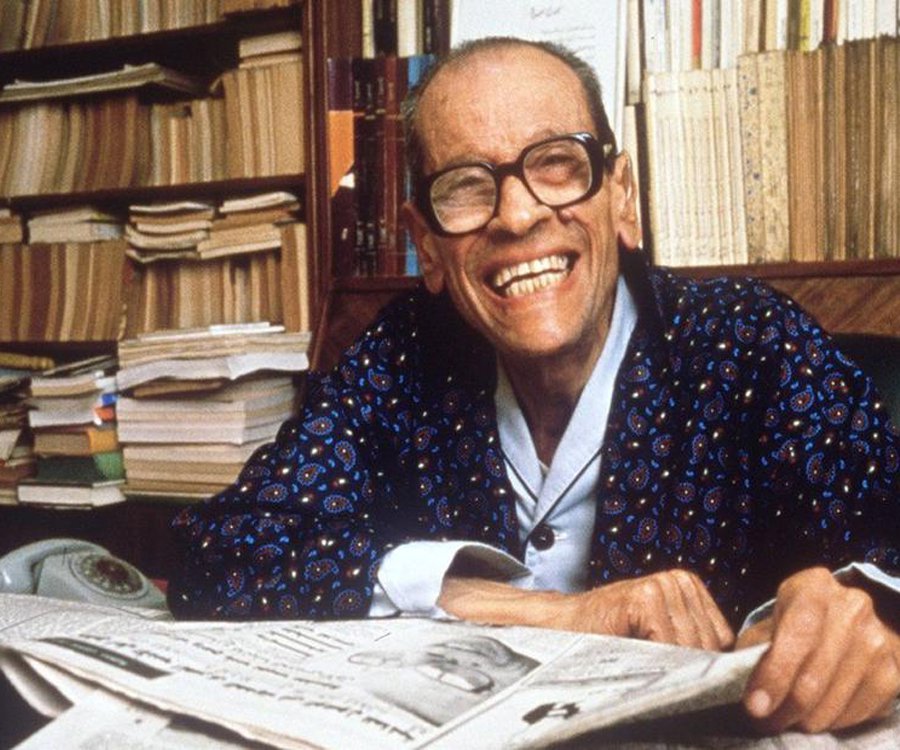Waguih Ghali’s 1964 semi-autobiographical novel “Beer in the Snooker Club” is an idiosyncratic piece of literature, written in English by an Egyptian Christian whose language style shares much with the mid-century American misanthropic tone of Walker Percy and J.D. Salinger. Protagonist Ram’s experience takes place in the early years of Nasser’s Egypt, between 1952 and 1958. Over many long beer-fueled conversations, Ram and his friends hash out their views on imperialism, communism, class, and revolution. The issues they discuss are surprisingly familiar to anyone living in post-Mubarak Egypt, and their discussions expose the system that protestors in Tahrir Square are currently working to uproot.
The novel, which Ahdaf Soueif has called “one of the best novels about Egypt ever written,” has received widespread praise and attention, and is well known to any student of Egyptian literature. But on the anniversary of the Free Officers’ 1952 coup d’etat, in the midst of renewed political change in Egypt, revisiting “Beer in the Snooker Club” seems quite pertinent. The policies of Nasser, meant to even out a deeply unequal society and free Egypt once and for all from the Colonial yoke, also put in place a ruling military class that suppressed dissent, thereby perpetuating an oppressive political culture that eventually ossified into Hosni Mubarak’s regime. “Beer in the Snooker” Club provides a unique view of this moment in time.
Prone to drinking too much and inadvertently seducing women, Egyptian Christian Ram, whose background closely mirror’s Ghali’s, has a difficult time navigating life at all. But amid his personal travails, he is also trying to make sense of his country and how to position himself within a new society.
Most of Ram’s politics are tinged with contradiction, but he is inclined to be sympathetic of Nasser’s movement. He is angry over the British occupation of Suez and disgusted by his family’s money, made on the backs of peasant labor. He earns the ire of his family for his sympathies.
His aunt taunts him as he sits down to lunch, “Nasser’s disciple… aren’t you going to tell them to take our house and silver?’”
But Ram himself is ambivalent. He does not consider himself a revolutionary. “I had no politics in me then. I didn’t consider the Egyptian revolution and getting rid of Farouk to be politics,” he says.
Ram never throws himself behind Nasser, and the Free Officer’s revolution quickly loses his sympathies, as Nasser begins putting communists in detention camps. But as political conversations taking place today demonstrate, change involves a re-evaluation of what powers should hold influence over a country. International centers of power that show up in conversation in “Beer in the Snooker Club” are familiar ones: England, the United States, and Israel.
Ram argues with his cousin, Mounir, who accuses him of being "Red," over the value of American democracy. His cousin, fresh from a trip to the United States, returns extolling the virtues of free enterprise. Their argument eventually escalates into physical blows.
“I don’t remember what happened exactly,” writes Ghali, “I told him to ‘wipe his backside’ with his American democracy.”
On another evening, Ram sits at the Snooker Club, where he and his friends Font and Levy have gathered together to drink, gamble, and talk about politics. Font and Levy spar over Israel’s intentions:
“If Israel had added her voice to that of the Arabs in protest against the troop concentration in Cyprus, and had told the Arab people: whatever our differences, we shall not be an instrument of imperial designs on you, an inestimable amount of good would have been done,” says Levy.
“You know very well that all Israelis would like is to see us dominated by Europe or America,” replies Font.
The themes echo a similar discourse that fills Cairo coffee shops today. The characters and their allegiances – Font the hard-liner, Levy the not-quite-Zionist, Mounir the neo-liberal, Ram the contrarian idealist – are familiar.
Another conversation that rings through Cairo is focused on the role of the military in a reformed Egypt. Snooker Club’s discussion of the military shows how the foundation was laid for its contemporary political importance and social prestige:
“It is surprising how, during my sojourn in London, my family had become reconciled to the army…. Although ‘don’t you know who I am – I’m a pasha or the son of one,’ has not quite been dropped. It is quite fashionable now to say: ‘Don’t you know who I am – I’m a colonel or a general or the son of one.’”
"Beer in the Snooker Club" is not a history lesson, nor does it serve as simply a distorted mirror image of Egypt today. But the book feels surprisingly contemporary. Guided by Ghali’s expert prose, charmed and saddened by Ram’s hapless and tragic lurches through existence, a reader will find a window into a society in violent flux, where all social strata are tentatively maneuvering within the new balance of power. Not all of the old rules apply, but some of them do.
Today Ram would find Cairo transformed, but still familiar. Cairo’s elite are still bilingual, but speak American English rather than British English and French like Ram’s family. Most of Ram’s Armenian and Jewish friends were long ago pushed out of the country. Groppi’s garden, one of Ram’s favorite places to sip an afternoon whiskey, is still a dreamy haven from dust and traffic, but like most of Ram’s favorite spots, it no longer serves alcohol. In the context of the present moment, “Beer in the Snooker Club” provides a glance at the sometimes circular nature of history through the intimate story of one person’s encounter with Egypt’s 1952 revolution.




